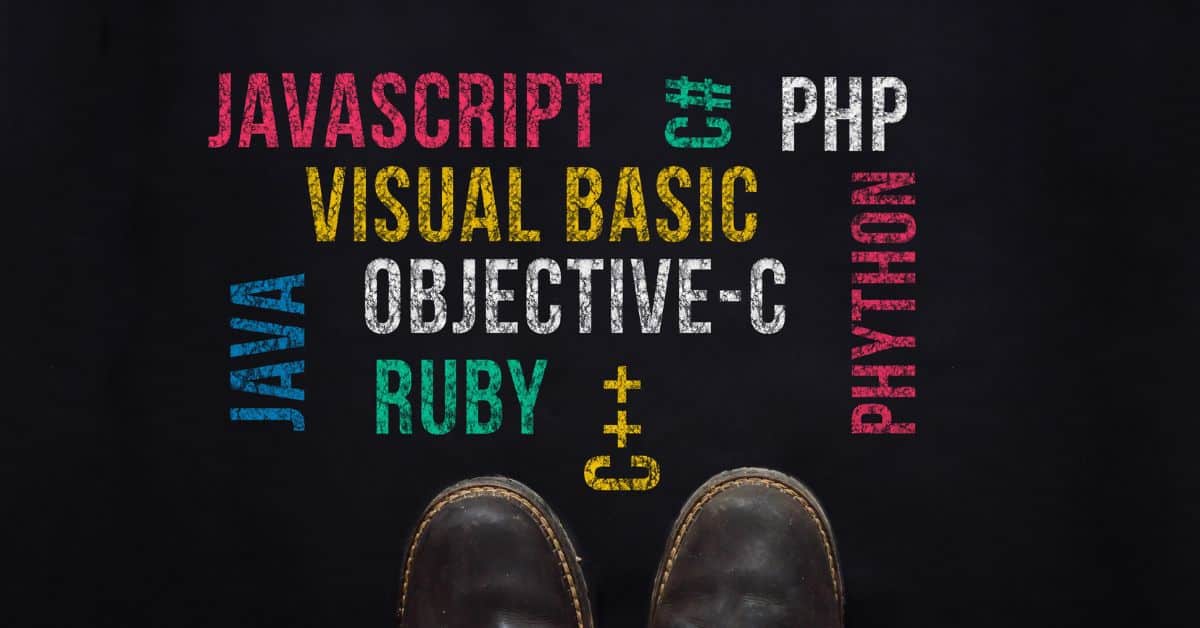When you first start learning Programming Language , it’s easy to get overwhelmed by the vast number of different Programming languages and frameworks available. Which is the right language for me? What resources do I need to learn more? It can be a challenge to figure out where to start. Programming languages differ in their syntax, their use cases, and even their audience.
Take JavaScript as an example: It’s a ubiquitous programming language that is used in websites, web apps, desktop applications, games, and even embedded systems like in TVs or car dashboards. Or take objective-C as another example: It’s used almost exclusively for developing iOS apps but it has some competition from Swift on the mobile platform and Java on the server side. This article will help you narrow down your options so you can finally pick a programming language that’s right for you.
What to Learn Before You Pick a Programming Language
If you’re just starting out learning programming, it’s worth taking some time to learn some of the key concepts in computer science before you decide on a programming language. These include data types, operators, variables, control structures, and how to break a problem down into parts. You can learn these concepts in a subject like Math, Physics, or Computer Science. Learning the fundamentals will significantly increase your knowledge base and help you choose a more suitable language for your goals.
If you’re interested in finding a career in computer programming, it can be helpful to understand the difference between a programming language and a computer programming language. Programming languages are made up of syntax and semantics, whereas computer programming languages are defined by the steps you take to build a computer program. There are many programming languages that fall under the broad category of “logic based languages.” You can often find a basic introduction to computer programming in logic-based languages such as Prolog, SYS, or LISP.
Decide What You Want to Learn in a Programming Language
Programming languages are often categorized by their intended use. For example, you can use a programming language to write an Android app, a web app, a desktop app, an iOS app, etc. This is an important consideration because some languages are better suited for one platform than another. In addition to platform, you should consider the language’s audience: Is the language used toward an industry like finance, government, or healthcare? How relevant is the language to your professional goals? If you’re interested in getting into the cybersecurity field, you’ll want to choose a language that’s designed with security in mind.
Find a Course to Get You Started
If you don’t know where to start, you can always try learning programming with a course. Courses are both helpful and accessible for people of all skill levels and experience levels. You can learn basic programming concepts and principles in short, easy-to-understand, bite-size modules. Plus, courses can offer real-world programming challenges for you to solve immediately, and they can also help you find a community of like-minded learners.
Here are a few course options to get you started: Udacity — Courses are taught by industry professionals and Stanford University professors. If you’re looking for a course that will help you develop a career path, Udacity can help you map out a plan and track your progress. Udemy — While Udacity has a much more polished feel than Udemy, both have millions of users and thousands of courses you can browse through. Udemy is a bit cheaper and has a much wider range of topics.
Ask Yourself Why You Want to Learn That Programming Language
It can be helpful to ask yourself why you want to learn a particular programming language. This can help you choose which language has the most promise for your goals. For example, if you want to build Android apps, you’ll want to choose a language with a large community and supported tools. Some languages with large communities and tools include: JavaScript, Python, Ruby, C++, and Java. On the other hand, if you want to build a web app or a desktop app, you can choose a language with a smaller community and tools like HTML, CSS, and JavaScript.
Look at Libraries, Forums and Community Resources
While it’s great to research a lot, you don’t have to try to learn everything at once. Take it one step at a time, and try to pick one thing to focus on at any given time. Programming languages often contain libraries that can make your jobs as a programmer much easier. For example, JavaScript has many built-in libraries that help you handle events, manipulate the browser, and interact with the web. Some of the best-known JavaScript libraries include: jQuery, Angular, and React.
Try Out Examples of Different Languages
Learning by reading is great, but sometimes you get a better understanding of a concept by seeing it with your own two eyes. Download an example for each language you’re interested in, and try building something with it. This can be a little intimidating at first, but it’s a quick and easy way to see if you like that language or not. You can try out examples for free on websites like CodeSandbox, Plunker, and Codepen.
Ask Yourself Which Features Matter Most When It Comes To Programmers?
It’s important to consider how much you’re willing to invest in learning a programming language before you choose one. You don’t have to be an expert in one language at the cost of another. There are many different features that matter when it comes to a programming language. These include syntax, standard libraries, and community support. Here are a few things to consider when thinking about which features matter most: – Syntax: Most programming languages have some kind of syntax.
For example, Python syntax is a set of parentheses and curly braces. – Standard Libraries: Many programming languages have libraries that help you to solve problems. For example, in JavaScript, you can use a library like jQuery to simplify working with the browser. – Community Support: It’s important to consider how active the community is for a programming language. How many meetups and conferences do they attend? How many StackOverflow questions do they answer?
Ultimately, Figure Out If It’s for You
Try out different programming languages and pick the one you enjoy the most. You don’t have to be an expert in a single language, and it’s often more important to immerse yourself in a language and community than to focus on being an expert. Find a programming language that interests you and focuses on the features that matter most to you. Whether you pick one language or another, remember that the most important thing is to keep learning and building.
Article Code: BD222TTT




